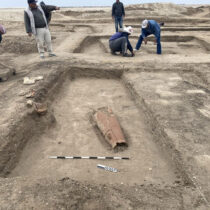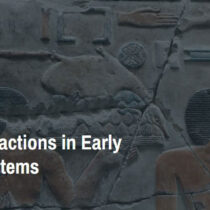The International Symposium on Archaeometry (ISA) in May 2014 will be a valuable opportunity to apply and demonstrate the latest research and findings of archaeometric research on a broad range of topics across time and space. The symposium will draw on examples and best practices from interdisciplinary research at the interface between the natural sciences, engineering and archaeology to reconstruct and understand human behavior through the study of material culture.
Taking place in Los Angeles, the ISA will bring together internationally renowned archaeological scientists and archaeologists with museum professionals, conservation scientists, policy-makers, representatives from non-governmental organizations and industry, natural scientists, engineers and other interested groups to discuss new findings and innovations in technology and scientific research, and address current and global challenges in archaeology and cultural property ranging from the looting and illicit trafficking of antiquities to the archaeology of transitional periods.
Important Dates to Remember
Deadline for abstracts: December 16, 2013
Early bird registration ends: February 18, 2014
Regular registration ends: May 15, 2014
Conference dates: May 19-23, 2014
Scientific Program
The symposium is being organized around the classic ISA session themes with the addition of two special sessions. These include:
Archaeo-Chronometry (including Radiocarbon and Historical Chronologies)
Biomaterials and Bioarchaeology
Ceramics, Glazes, Glass and Vitreous Materials
Human-Environment Interactions
Metals and Metallurgical Ceramics
Remote Sensing, Geophysical Prospection and Field Archaeology
Stone, Plaster and Pigments
Special ISA 2014 Sessions
Forensic Science Investigations in Art and Archaeology
The Transition from the Bronze to the Iron Age
Symposium Format
Keynote, oral and poster presentations as well as panel discussions are planned. These will give participants the opportunity to discuss the application of research findings and implications to archaeology and other scientific disciplines.




